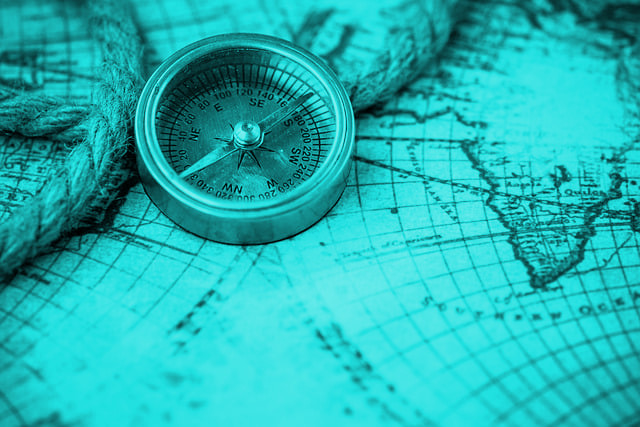The race for productivity against machines seems to be lost. Our linear learning capacity will never be able to compete with the exponential progress of technology. So how do we find our place in this fast-paced world?
Go Where No One Goes
When the situation becomes risky, you can play it safe or you can go off the beaten path. The further you go, the less safe you will be. A perennial approach is to constantly cultivate several skills that allow you in a crisis to work in 3 types of jobs not directly connected to be more resilient. For example, you could be a programmer, a dance teacher, and a math tutor. Eventually, you will always have a way to bounce back. Then there is another way, this one is much more risky, I will call it the way of the explorers. You know who Christopher Columbus is, don’t you? But do you know the names of all the budding explorers who were attacked by pirate ships, shipwrecked and never came back from their journey or those who simply sank in the middle of the sea? Of course not. Well, without these dozens of failed attempts, the Spanish crown would never have made the discovery that changed its destiny forever. Are you ready to become a modern-day explorer?
Exploring Is Always A Question Of Means
Whether in the 15th century or today, exploring requires capital or skill, in most cases. The explorers of the past were financed by monarchs, shipowners or shareholders of all kinds. Even Viking ships took into account the potential raids (the earnings from their expeditions) before committing themselves to the seas. Today more than ever, if you want to be at the forefront of innovation and be an explorer, you need to surround yourself with the right people (human resources) and the right investors (financial resources). The adventurous spirit is not enough and it has always been like that. The hidalgos (small Spanish nobility) who reconquered the Iberian Peninsula still had to be equipped (weapons and mount), which was not available to everyone.
Where You Can Make A Difference
There is, however, a way to explore on a small scale, for example by training in a minority technology to the point of developing products or services related to it. The market context could change and move favorably in your direction. You can then take advantage of the situation.
How To Be Competitive Against Machines?
In the current age of automation, Artificial Intelligence (AI) is rapidly changing the way we live. We are now approaching a point where machines will outperform humans in many task domains, such as vision and robotics. With this increased ability of computers to complete tasks faster and more accurately than humans, the risk of automation replacing humans in the workforce is a legitimate concern.
However, although machines may be able to outperform humans in some task domains, there are some areas of expertise where humans still have the advantage. Namely, in the areas of communication, empathy, manual dexterity, creativity, and critical thinking, humans have traits that make them distinct from machines. It is these interpersonal and critical qualities that will allow humans to maintain their advantage over machines in the long-term.
The ability to communicate effectively is one area where machines cannot yet outperform humans. The nuances of human language make it difficult for machines to properly interpret and respond to natural language commands. Similarly, manual dexterity and creativity are both necessary qualities that machines lack. This is evidenced by the current inability of machines to accurately complete tasks in which precision and creativity are required, like drawing and sculpting.
In addition to these physical and creative skills, humans also have the advantage of critical thinking over machines. The ability of a machine to think critically and solve complex problems is far behind that of humans. Humans can think abstractly, make connections and identify patterns that artificial intelligence systems simply cannot. This makes them essential in areas such as science and business where problem solving is key.
Therefore, it is evident that while machines may be able to outperform humans in some areas, the interpersonal and critical qualities that humans possess remain clear advantages. This will be the basis for humans to maintain their advantage over machines in the future, as machines become more and more advanced.







